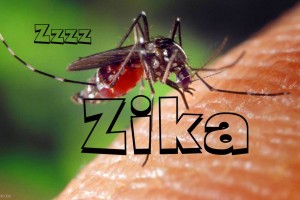- Home
- Editorial
- News
- Practice Guidelines
- Anesthesiology Guidelines
- Cancer Guidelines
- Cardiac Sciences Guidelines
- Critical Care Guidelines
- Dentistry Guidelines
- Dermatology Guidelines
- Diabetes and Endo Guidelines
- Diagnostics Guidelines
- ENT Guidelines
- Featured Practice Guidelines
- Gastroenterology Guidelines
- Geriatrics Guidelines
- Medicine Guidelines
- Nephrology Guidelines
- Neurosciences Guidelines
- Obs and Gynae Guidelines
- Ophthalmology Guidelines
- Orthopaedics Guidelines
- Paediatrics Guidelines
- Psychiatry Guidelines
- Pulmonology Guidelines
- Radiology Guidelines
- Surgery Guidelines
- Urology Guidelines
India fertile ground for Zika epidemic, says Lancet

Toronto : With 13 Indians already confirmed to have been infected with the Zika virus in Singapore, experts have more bad news to share. A new study published in The Lancet Infectious Diseases has warned that India has all the right ingredients for a potential Zika epidemic.
A combination of factors high travel volumes from Zika affected areas in the Americas, local presence of mosquitos capable of transmitting Zika virus, suitable climatic conditions, large populations and/or limited health resources put India and few other countries in Africa and Asia pacific at greatest risk of Zika virus transmission, the researchers found.
"An estimated 2.6 billion people live in areas of Africa and Asia-Pacific where the local mosquito species and suitable climatic conditions mean that local Zika virus transmission is theoretically possible," said study author Kamran Khan from St Michael's Hospital, Toronto, Canada.
"Warmer temperatures in the northern hemisphere (when mosquitos are more active) increase the risk of new outbreaks appearing outside of the Americas," Khan added.
In this study, the researchers established the ecological niche for Zika virus in the Americas where Zika virus transmission has been reported or where conditions are suitable.
The researchers then gathered data on airline ticket sales from 689 cities with one or more airports in the region travelling to Africa or Asia-Pacific over a whole year December 2014 to November 2015.
The research team then modelled three different scenarios of seasonal suitability for mosquito borne transmission of Zika virus.
In addition, the team mapped the monthly volume of travellers arriving into Africa and Asia-Pacific in order to identify countries at greatest risk of Zika virus importation across seasons.
Health expenditure per capita was used as a proxy of a country's capacity to detect and effectively respond to a possible Zika virus outbreak.
Countries with large volumes of travellers arriving from Zika virus-affected areas of the Americas and large populations at risk include India (67,422 travellers arriving per year), China (23,8415 travellers), Indonesia (13,865 travellers), the Philippines (35635 travellers), and Thailand (29,241 travellers).
Of the countries with the largest at risk populations, the authors suggested that India, the Philippines, Indonesia, Nigeria, Vietnam, Pakistan, and Bangladesh might be most vulnerable to impact because of their limited per capita health resources.
While the analysis emphasises the potential for human infection via mosquitos, sexual transmission of Zika virus infection is now well documented.
The authors said that travellers returning from affected areas would benefit from health education to prevent sexual transmission.
"The potential for epidemics to occur in parts of Africa and the Asia-Pacific region is particularly concerning given that the vast numbers of people who could be exposed to Zika virus are living in environments where health and human resources to prevent, detect, and respond to epidemics are limited," Khan explained.
"Our findings could offer valuable information to support time-sensitive public health decision-making at local, national, and international levels," he added.

Disclaimer: This site is primarily intended for healthcare professionals. Any content/information on this website does not replace the advice of medical and/or health professionals and should not be construed as medical/diagnostic advice/endorsement or prescription. Use of this site is subject to our terms of use, privacy policy, advertisement policy. © 2020 Minerva Medical Treatment Pvt Ltd